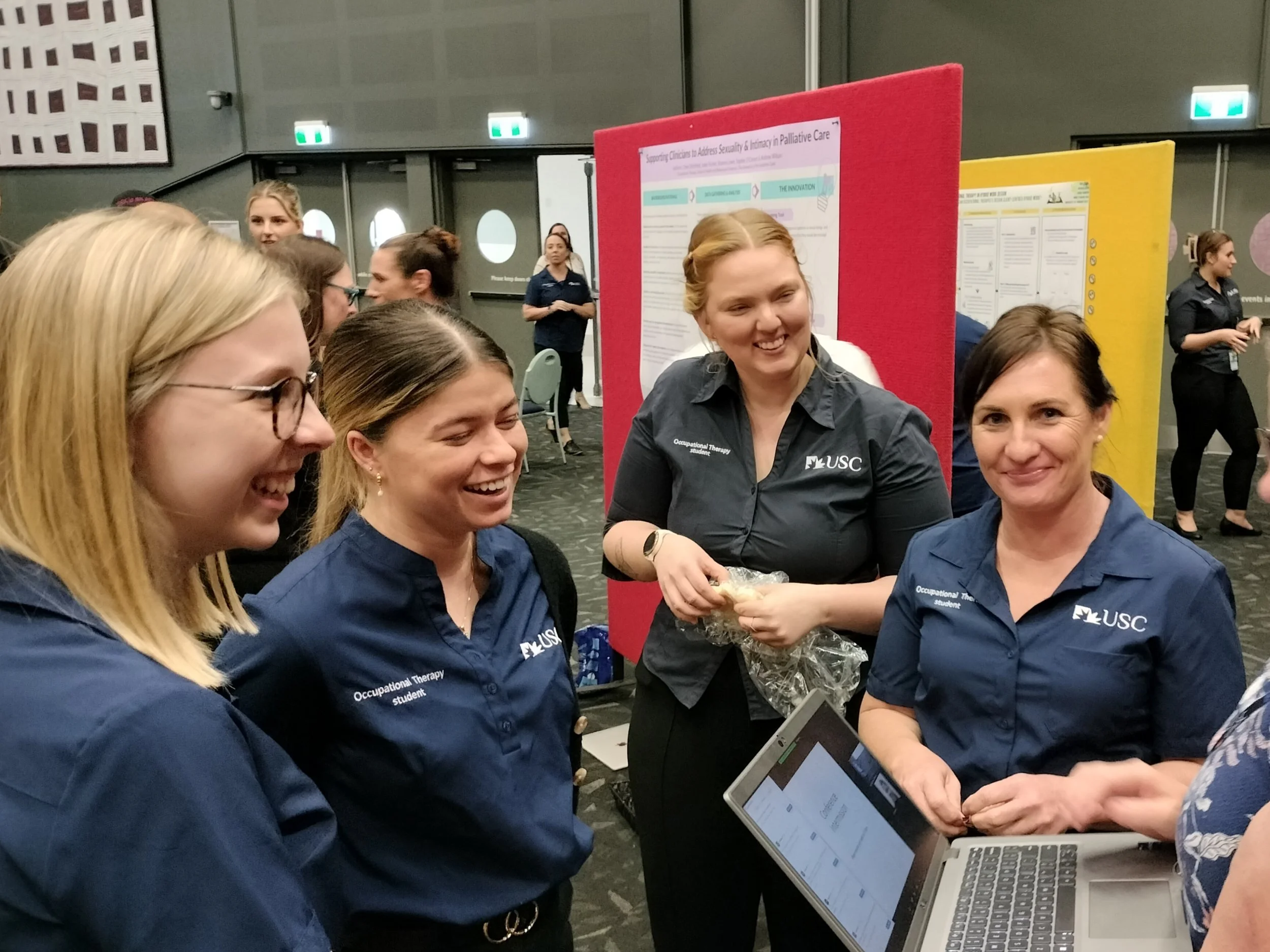
Health and Wellbeing
Cultivating Occupational Therapy students' research competencies
Three Honours students under 25 were supported to communicate their research project findings to a wider audience, beyond the university, such as end-users. These projects focus on picky eating, assistance dogs and electronic measurement of function. The Honours students were supported in sharing their findings with industry professionals, and their academic community addressing concerns related to healthy eating and safer, inclusive communities.
Beyond supporting these three youth researchers, this Occupation Therapy (OT) project also aimed to stimulate the research interests and cultivate a research culture among OT final year students by co-designing research projects to create innovations based on real world research with external community groups, using project-based learning. Student teams within the OT course could choose projects ranging from connecting people with disabilities socially to intergenerational activities for older adults.
Supporting Psychology students research career aspirations
This project is aimed at actively involving youth in research priorities. This psychology youth research proposal aligns with the sustainable development goals of good health and wellbeing. All six youth involved chose their own projects and were supported by their academic supervisors. This project aimed to support honours students to communicate their research project findings to a wider audience, beyond the university, such as end-users.
The youth projects are: 1) Applying systems-thinking to understand the effects of traffic safety culture on young driver speeding behaviour; 2) Evaluation of an implementation intentions intervention for reducing stress-induced eating; 3) The role of self-efficacy in older adults’ engagement in community exercise programs during COVID-19; 4) Cognitive models of neuroticism and hearing speech amidst noise: implications for audiologists; 5) The recognition-primed decision model in elite football coaches; and 6) Exploring the Influence of Information Manipulation on Buyer Decision Making in Darknet Marketplace.
Photo by Ian Schneider on Unsplash
Misinformation Fans
Misinformation poses a serious threat to both individual and societal health and wellbeing. There is increased popular and scholarly attention on the spread of fake news and misinformation, however the majority of this research is focused on the political outcomes of such information and how to correct this misinformation. This project will argue for a different approach. One in which the use of fan studies shifts the focus from problems about ‘which news is real’ to ‘which news we choose to believe’. The study examined how fannish behaviours explicitly and implicitly help drive and sustain the health and wellness misinformation within the TikTok ' health and well-being communities'. Drawing on this example, it aimed to examine how an affective investment and quest for belonging impact the salience of misinformation. Therefore, the implications of the study suggest that trying to rectify problems with misinformation by simply ‘educating’ the public on the correct information will not be sufficient, as this does not address the underlying motivations of engaging with this discourse. As an interpretative framework, fandom positions the traction and spreadability of misinformation and fake news as anchored in people’s own self-perceptions. Therefore, this project examined how, much like fans of popular culture texts, those who believe and peddle misinformation are drawn to do so by a longing for belonging to a community and an intense affective relationship with the collective.
